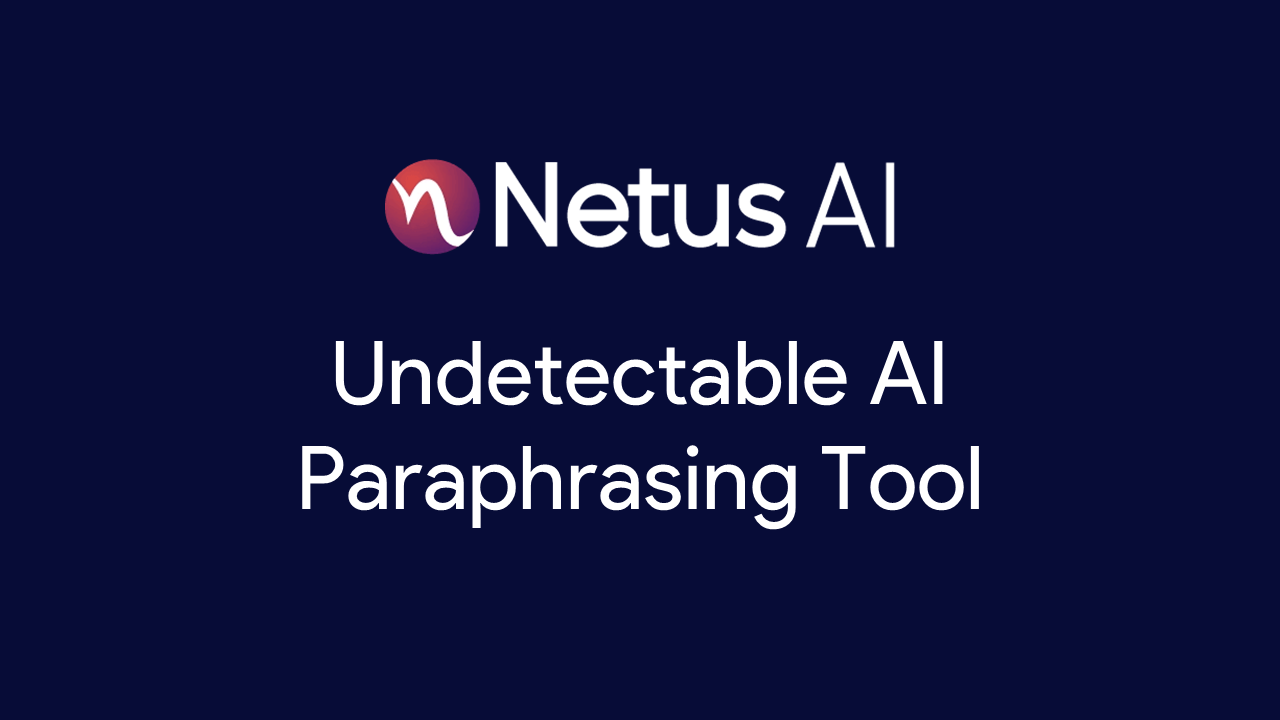NetusAI
NetusAI
Blog Article

Navigating the Complexities of AI Paraphrasing and Detection
The landscape of content creation has been significantly transformed by AI-driven paraphrasing tools like NetusAI, which assist writers in producing unique and high-quality content swiftly. NetusAI stands out by transforming AI-generated content into human-like writing, offering features such as an AI bypasser to avoid detection and an AI detector to distinguish between human-written and AI-generated text with high accuracy. However, the effectiveness of these tools in bypassing detection algorithms, especially those used by Turnitin, remains a topic of debate. Check out Quillbot reworder to learn more.
The Capabilities of NetusAI
NetusAI is designed to cater to various content needs, providing a sophisticated solution for generating human-like text. Its AI bypasser aims to circumvent detection mechanisms, while its AI detector ensures the authenticity of the produced content. This dual functionality positions NetusAI as a powerful tool for content creators who require both high-quality output and assurance against detection.
Can Turnitin Detect Chat GPT and QuillBot?
A significant concern among users of AI paraphrasing tools is whether detection services like Turnitin can identify AI-generated content. The Netus.ai blog addresses this by examining if can Turnitin detect Chat GPT and QuillBot. Turnitin has enhanced its algorithms to detect content paraphrased by tools like QuillBot, making it clear that relying on QuillBot for plagiarism avoidance is increasingly unreliable.
How Turnitin Detects Paraphrased Content
Turnitin employs sophisticated algorithms that go beyond simple word matching to detect similarities in text. These algorithms analyze the structure, context, and overall linguistic patterns of the text, enabling them to identify paraphrased content. Even if QuillBot significantly alters the wording, Turnitin can potentially flag the content by recognizing patterns indicative of paraphrasing. This raises the question, does Quillbot get detected by Turnitin? The answer is increasingly yes, as Turnitin continues to refine its detection capabilities.
The Effectiveness of QuillBot
QuillBot aims to offer alternative phrasing while maintaining the original meaning, helping users avoid plagiarism. However, its effectiveness in evading Turnitin detection varies. Some users report that their QuillBot-paraphrased content was flagged by Turnitin, indicating that the detection tool can recognize AI-generated paraphrasing to some extent. Others have managed to submit QuillBot-generated work without being flagged, suggesting variability in detection depending on the nuances of paraphrasing. The reliability of the Quillbot reworder is thus under scrutiny as Turnitin's algorithms become more sophisticated.
Turnitin's Advanced Capabilities
Turnitin continuously enhances its detection capabilities by incorporating machine learning and natural language processing (NLP). These advancements improve its ability to identify paraphrased and AI-generated content with increasing accuracy. As Turnitin's algorithms become more sophisticated, the challenge for paraphrasing tools like QuillBot intensifies. This ongoing development means that tools designed to bypass detection, such as NetusAI, must also evolve to maintain their effectiveness.
Practical Implications for Content Creators
For content creators, understanding the dynamics between paraphrasing tools like QuillBot and detection services like Turnitin is crucial. The persistent question of does Quillbot get detected underscores the need for vigilance. Relying solely on paraphrasing tools to avoid plagiarism is becoming less viable as detection algorithms advance. While tools like NetusAI offer features designed to circumvent detection, their long-term effectiveness is uncertain.
Conclusion
The interplay between AI paraphrasing tools and detection services presents a challenging landscape for content creators. NetusAI exemplifies the advancements in AI-driven writing assistance, providing powerful tools for generating human-like content. However, as Turnitin and similar services enhance their detection capabilities, the question of whether can Turnitin detect Chat GPT and QuillBot becomes increasingly relevant. Understanding these dynamics and the limitations of paraphrasing tools is essential for anyone involved in producing high-quality, authentic content. The evolving capabilities of detection algorithms emphasize the need for continuous adaptation and vigilance in the use of AI-driven writing tools.
Report this page